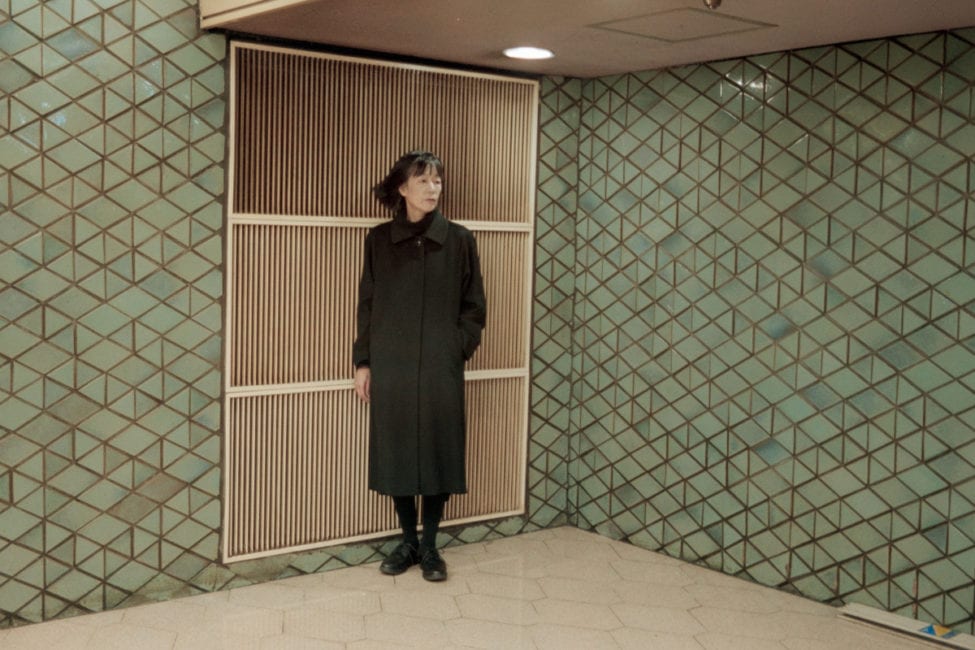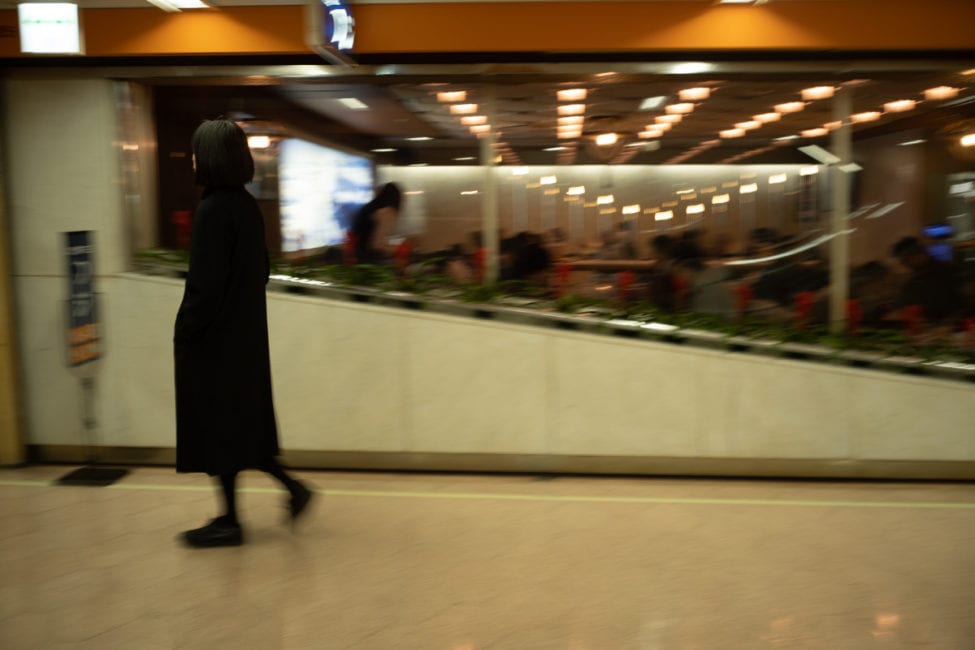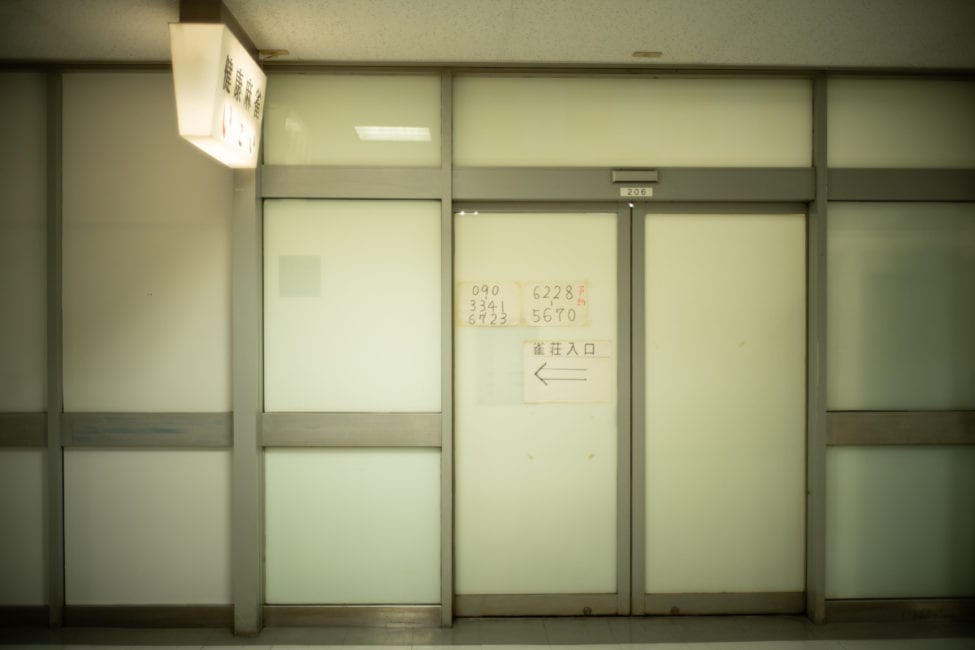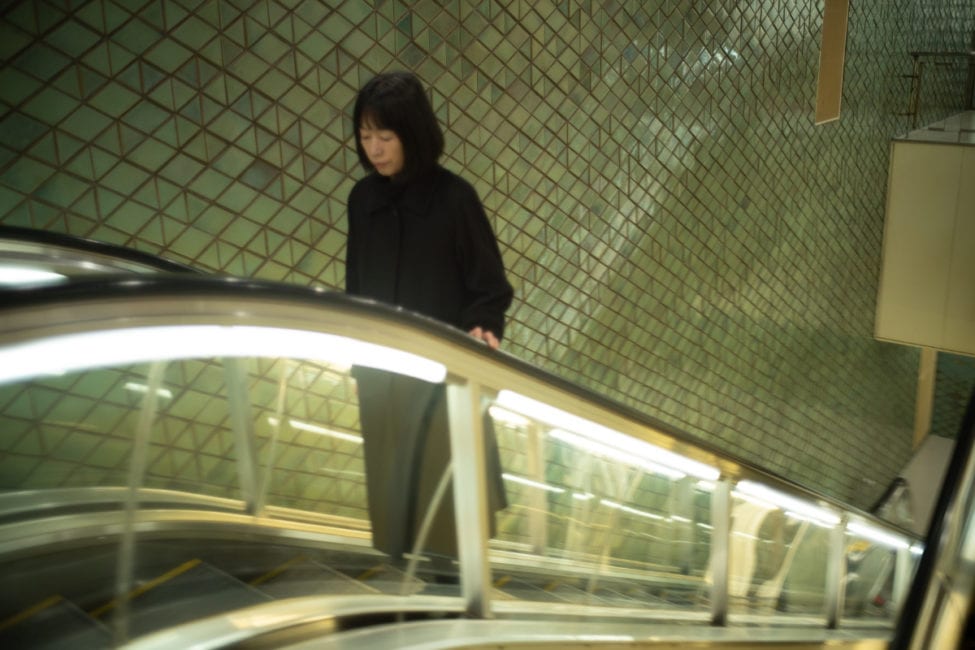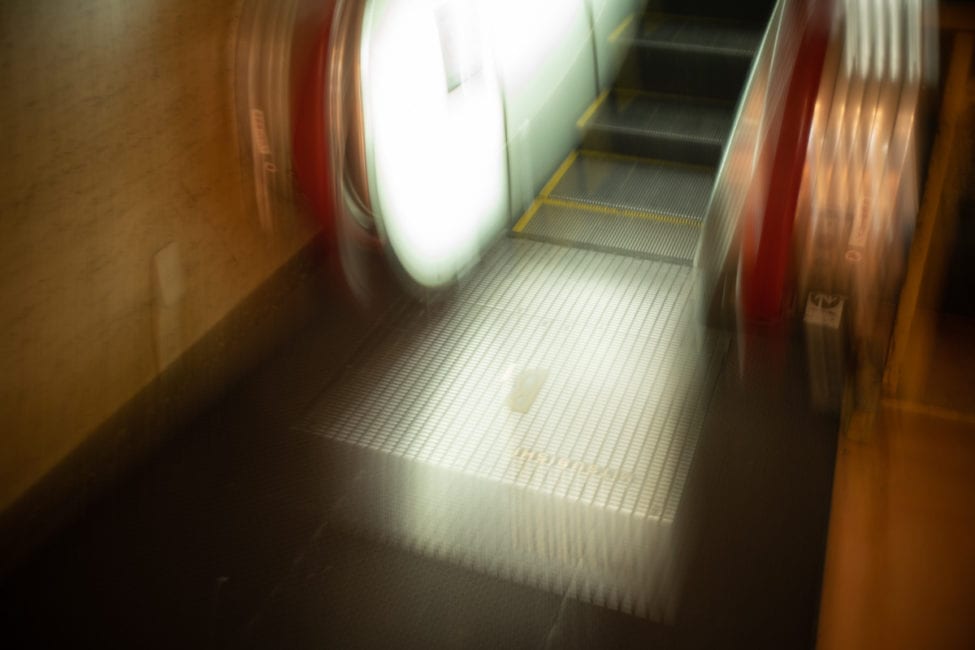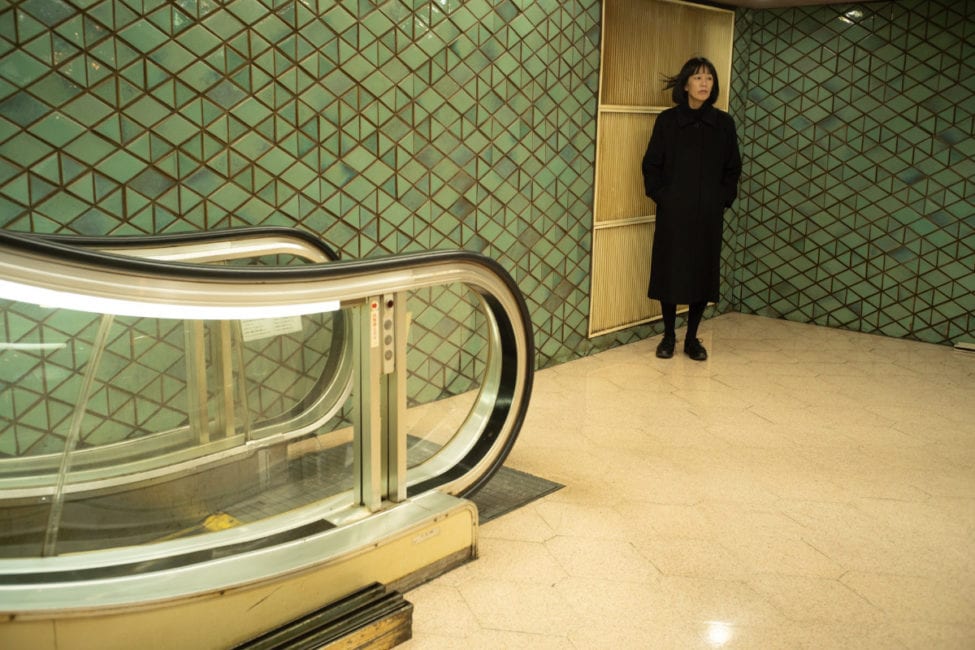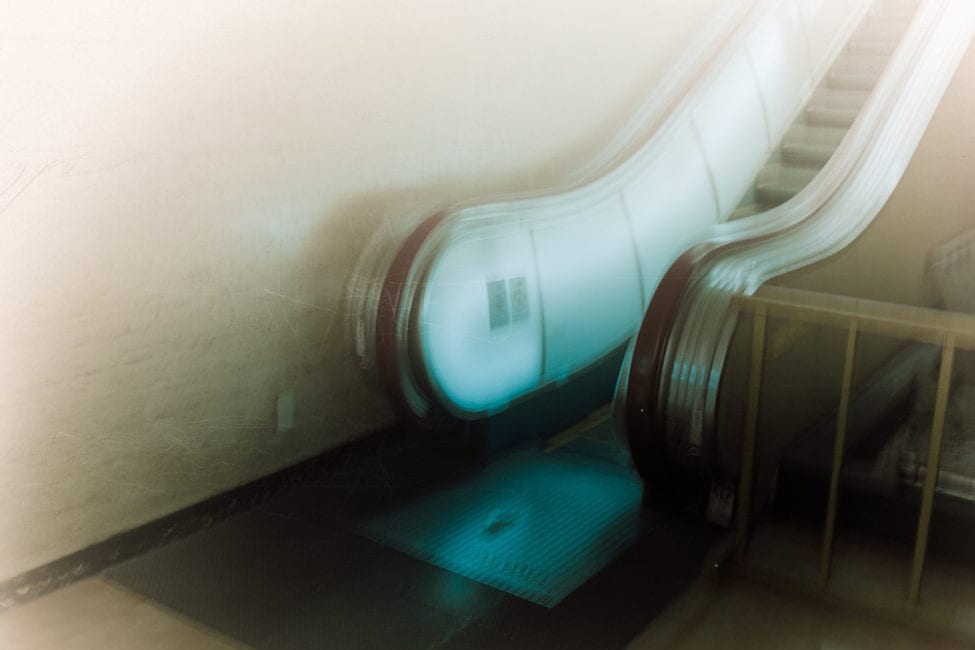It’s somewhat telling that, when you search for Japanese avant-garde musician and vocalist Phew, real name Hiromi Moritani, the majority of the search results include the word ‘legendary’.
Emerging from the creative melting pot of the Japanese punk scene in the 70’s, Phew was part of the group Aunt Sally – an avant-punk-psychedelic-rock group from Osaka – who released just one record before disbanding. Years passed, seeing her record with the likes of Ryuichi Sakamoto, individuals from Can and Einstürzende Neubauten, and alongside other luminaries.
Then, in 2017, a new album, ‘Light Sleep‘, lands.The work constitutes a new sound and direction in her solo work, with rushing synths and early beat-machines instead of instruments typically associated with a punk background. Scarcely a year later and a follow up arrives by way of 2018’s ‘Voice Hardcore‘, a jaw-dropping plunge into musical universes constructed solely using her iconic voice.
Now, Disciples prepare to release what may be considered the third album in this trilogy, ‘Vertigo KO’, which combines the essential natures of ‘Light Sleep‘, and ‘Voice Hardcore‘. Ahead of its release, we were lucky enough to ask Phew some questions on the record, and are ecstatic to present her first ever recorded mix.
Interview by Freddie Hudson
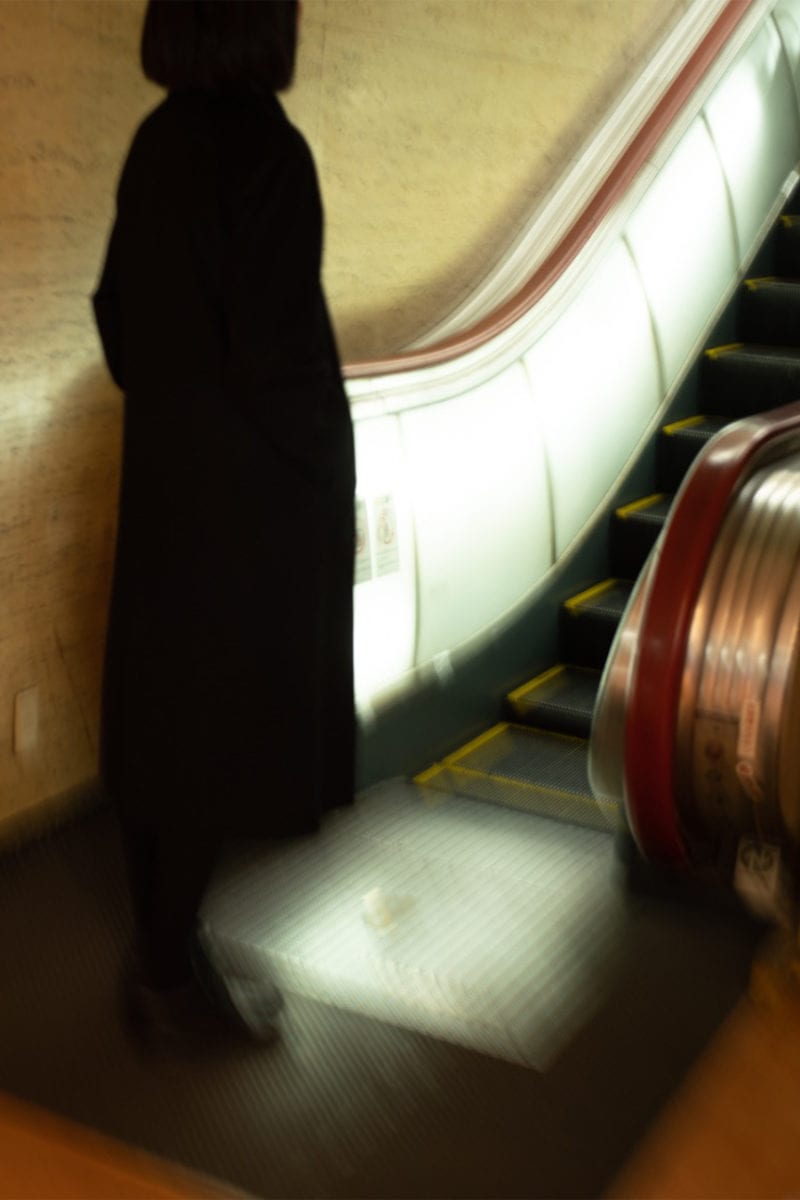
"I've never made a mix before, so I decided to give it a go. It was a lot of fun to work on. At the same time, I felt guilty about editing a great piece of work to my liking."
Your previous album, ‘Voice Hardcore’, used only your voice, which itself is a calling card of yourself as an artist. What inspired you to do this?
It was in 1980, when I recorded my first solo single, that I realised that I could create a work using only my voice. When I dubbed my own voice, a completely different world emerged that could not be described in the context of melody, harmony, rhythm and sound technology. That’s when I thought I could paint a picture with my voice.
This idea has been brewing for a long time. But the direct impetus was when I got sick during a tour in 2017. With the inability to carry heavy equipment and difficulty in setting up, I wondered if I would be able to make music with my body alone.
In what ways are ‘Light Sleep’, ‘Voice Hardcore’ and ‘Vertigo KO’ linked? What are the principal differences?
These are chronologically linked in my mood: ‘Light Sleep‘ was the first electronic music record I made alone, and is more impulsive than the next two. ‘Voice Hardcore‘ was recorded after I was sick on tour, and ‘Vertigo KO‘ is probably the first to start balancing the voice with electronic sounds. A more objective work than the previous two.
Do you mean “objective” in that you’ve set out to achieve a goal by merging these developing strands of your work, or that you feel it’s perhaps a more considered approach than the other two — which seem to have been created out of spontaneity or creative impulse?
I used the word “objective” to mean perceiving my work from a distance. ‘Vertigo KO‘ is a compilation of unreleased material from 2017-2019, which is a big reason why I was able to look at it objectively. I hope my following album has a more considered approach!
What are the parallels you see between the forms of music-making first available to you, and that which you use now? What do electronic instruments give to you that is similar to what came before?
When I first started playing music in the late 1970s, mixers, tapes, recorders, and electronic instruments were expensive and required a lot of space, but in just over 40 years, the music production environment has changed dramatically and it’s become easier to record, and nowadays, AI is doing the mixing and mastering.
The environment has changed a lot, but one thing that hasn’t changed is that the performer is still the main player in music production. Depending on what I want to express, I use different equipment. I use old synthesizers and also software. I’ve never really thought about what kind of music I would make based on the equipment I use.
Can you talk about some of the equipment you’ve used in this album? Does it differ from your live set up?
Free software, an old Mini-Moog, rhythm machines, tape echoes, and a newer modular synth. Of these, only the modular synth is used live. Then the microphone, and the voice!
What standards do you have for your equipment? Do you use only top-end gear, or do you seek more ‘unrefined’, affordable hardware?
Small, light, easy to operate, sturdy for a live show!
For recording, equipment that produces the sound I want to make. The trouble is, the equipment that can make the sounds I like is expensive. Of course, if I can find it at an affordable price, I would be very happy.
Your home doubles as a recording studio. Why do you favour this over a professional studio, for your albums?
At home, I can record what comes to mind immediately and there is no time limit. This is one of the best advantages of home recording. But I don’t have soundproofing in my home, so I often find myself wishing to record in a studio.
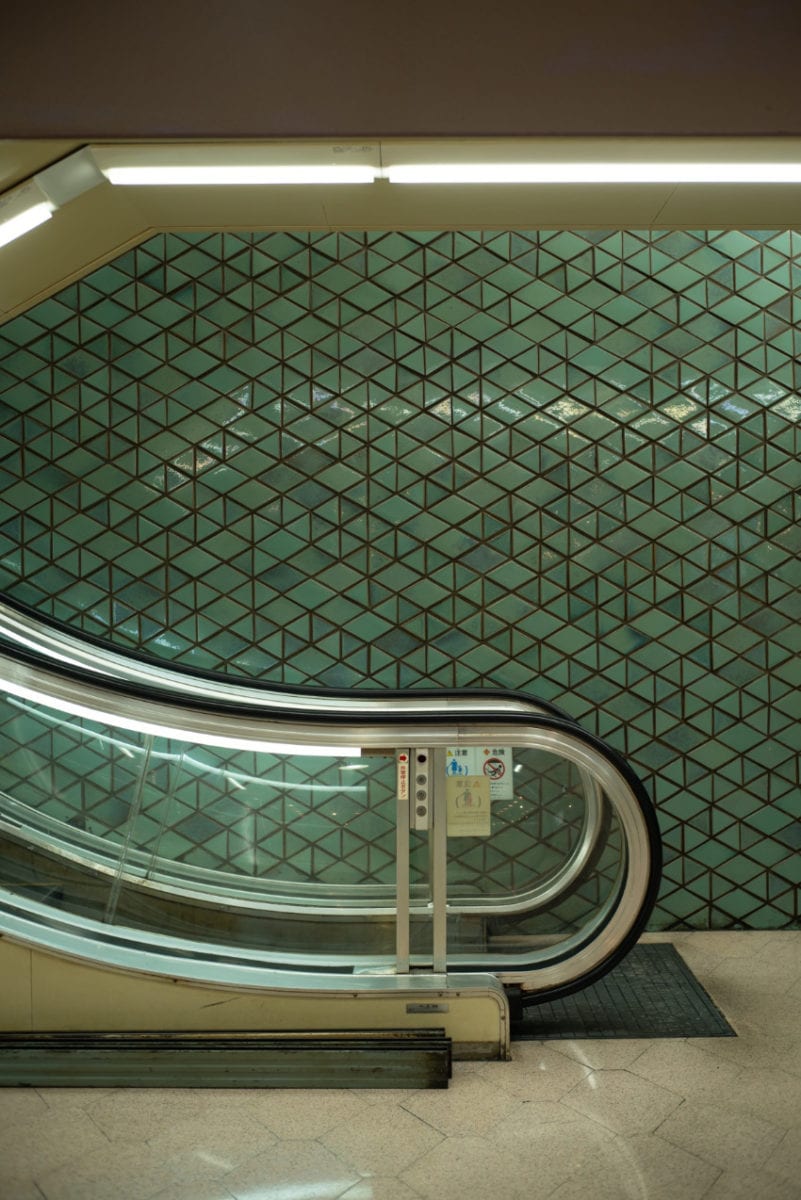
"This feeling of "anyone can make music" is what it was like in 1976-77, at the dawn of the punk era"
You’ve mentioned in a previous interview that your early interest in Punk was more about the “possibilities” than the actual music itself. Have you extended this to electronic music? How much do you feel this is possible?
Nowadays, everyone can record at home, there are many inexpensive and portable equipment options available, and everyone can release their work. This feeling of “anyone can make music” is what it was like in 1976-77, at the dawn of the punk era. In that sense, I think it applies to electronic music as well.
In the same interview you talk about how you listened to The Beatles, and it was less the nature or specifics of their lyrics which captured your ears and more the sounds of their voices, like that of an instrument. I want to ask what significance, if any, using English in your music holds? Do you use this language in the same way you appreciated The Beatles, to ’paint’ with the sound, rather than the specific lyrical content?
In a word, it would be the defamiliarization effect. By expressing myself in a language that is not the mother tongue, I believe it helps me to distance myself from my feelings and thoughts and to rethink them critically in a different context.
Music — especially live music — can be a powerful weapon or rallying cry against corrupt or ineffective power structures. Do you think the recent restriction of live events may have an impact on freedoms, worldwide?
“Freedom” is a very difficult word. One person’s liberty-seeking actions may infringe on another’s freedom. I believe that if there are 100 people, I need to have the imagination that there are 100 different freedoms. And music, movies and books are necessary to feed that imagination.
I think music can be a means of protest. On the other hand, music is powerless, helpless and ineffective. But, this is an essential part of the world we live in.
Why did you decide to record a mix for us? It’s an interesting variation from a live recording.
I’ve never made a mix before, so I decided to simply give it a go. It was a lot of fun to work on. At the same time, I felt guilty about editing a great piece of work to my liking.
By “editing”, do you mean constructing and reconstructing the mix itself to reach your satisfaction, or being a little uncomfortable in other’s work creatively in this way, being so different from your normal method of music-making? Was this assembled using vinyl, CDJ’s, or some other way?
Some of the tracks are very long. I shortened those longer songs and reconstructed them into one mix. As a music listener, I really enjoyed the process. On the other hand, I didn’t feel comfortable consuming music for my own pleasure and that of others who would listen. I mainly imported the music from CDs and vinyl and edited it in my DAW.
Was this mix composed ad-lib and more of a stream of consciousness than a planned or rehearsed event?
It was hot and humid here, and I wanted to listen to some tunes which have a cool impression, so I chose the first song by Flying Lizards. Guided by the first song I chose, I made an hour-long mix at my leisure.
I selected the songs according to the images that came to me, so you could say that I followed the stream of my consciousness.
I’d love it if you could introduce some of the songs which you’ve selected for us here, whether they be old favourites or more recent findings.
Some of the tracks I’ve been listening to for a long time, and others I’ve recently found. For example, Model Home’s ‘Livin’ In A Treehouse’ was just released a few months ago. Commenting on all the songs would be very long, so let me just mention the songs that are hard to access information on:
- Laura Ortman – ‘Battle Of Horsefeathers‘. I saw her performance in NYC in 2018. It was brilliant.
- Kazuhiro Nishiwaki – ‘Ending’. A Tokyo-based guitarist and painter who has been active since 80s. The track I chose is from a CDR that was sold at his exhibition.
- Dowser – ‘Playground’ & ‘Yoku’. Dowser is a flux unit since 80s that has been mixing my albums since 2016.
- Pungo – ‘Sayonara’, ‘Hal’, & ‘Theme’. Pungo was a band that played in Tokyo in the early 80’s just for a few years. All but the core members were in flux, and they had fun and freedom to do their music. I play with Pungo’s founder, Yuriko Mukoujima, from time to time.
Your comment about mixing at your leisure suggests some familiarity with stringing music together in this way — certainly, on listening, there isn’t a sense of this being compiled by an amateur to the format. I’m particularly enjoying the use of some of the music almost as segue or a tool, rather than a simple ‘in-to-out’ deployment of tracks. What led you to making this decision?
It was pleasure, not leisure. Making a mix is similar to improvising in a limited time, or to the process of determining the order of tracks on a CD album. I use techniques such as cut-ups, imagining an introduction and an end, and thinking about the connections between the songs.
‘Vertigo KO’ is out 4 September via Disciples. Order a copy from Bandcamp.
TRACKLIST
1. The Flying Lizards – Circus
2. The Flying Lizards – In My Life Time
3. Laura Ortman – Battle Of Horsefeathers
4. David Cain – War Of The World
5. Kazuhiro Nishiwaki – Ending
6. Robert Ashley – Parte Prima
7. François Bayle – Lively
8. Los Crudos – 500 Años
9. Zoviet France – Mohnomishe
10. Takehisa Kosugi – Mano-Dharma
11. Delia Derbyshire – Delia’s Theme
12. Yuji Takahashi – Doro No Umi
13. Yuji Takahashi – Dogusyu
14. John Baker – Structures
15. Pungo – Sayonara
16. Dowser – Playground
17. Zoviet France – Come Infinite
18. Ben Patterson – Duo For Voice And a String Instrument
19. John Baker – New Worlds
20. Pungo – Hal
21. Nurse with Wound – Chance Meeting On A Dissecting Table
22. Model Home – Livin’ In A Treehouse
23. Pharoah Sanders – Black Unity
24. Pungo – Theme
25. Dowser – Yoku
26. Morton Feldman – Rothko Chapel
